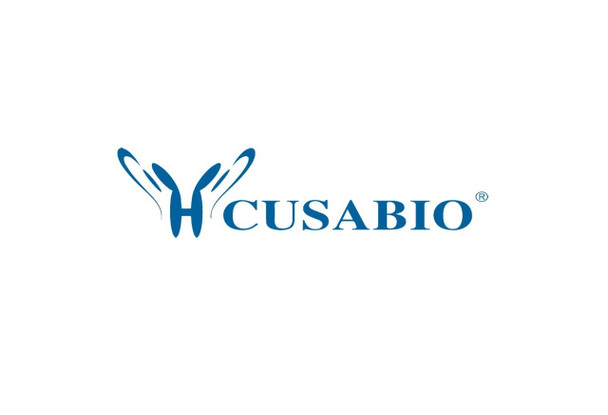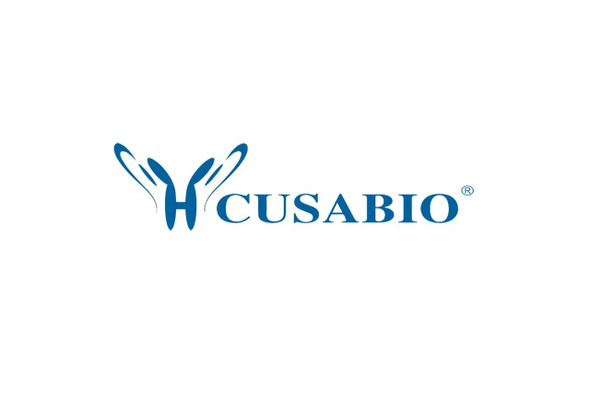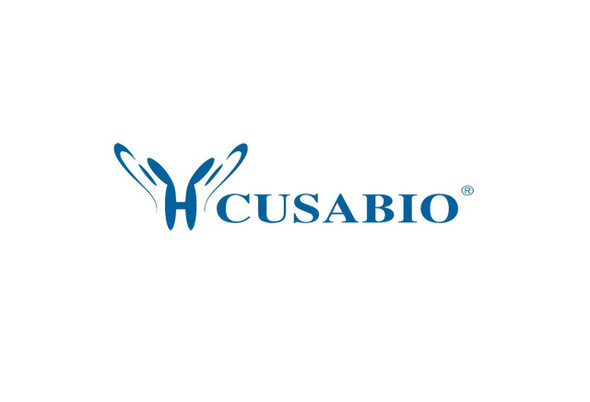Cusabio Virus & Bacteria Recombinants
Recombinant Micrurus tener tener Kunitz-type neurotoxin MitTx-alpha | CSB-YP516846MUA
- SKU:
- CSB-YP516846MUA
- Availability:
- 25 - 35 Working Days
Description
Recombinant Micrurus tener tener Kunitz-type neurotoxin MitTx-alpha | CSB-YP516846MUA | Cusabio
Alternative Name(s): ; Kunitz-type neurotoxin MitTx-alpha
Gene Names: N/A
Research Areas: Others
Organism: Micrurus tener tener (Texas coral snake)
AA Sequence: QIRPAFCYEDPPFFQKCGAFVDSYYFNRSRITCVHFFYGQCDVNQNHFTTMSECNRVCHG
Source: Yeast
Tag Info: N-terminal 6xHis-tagged
Expression Region: 25-84aa
Sequence Info: Full Length of Mature Protein
MW: 9.1 kDa
Purity: Greater than 90% as determined by SDS-PAGE.
Relevance: This heterodimeric toxin potently activates mouse acid-sensing ion channel ASIC1/ACCN2 expressed in Xenopus oocytes. Both alternatively spliced isoforms ASIC1a and ASIC1b are activated, with a higher potency for ASIC1a (EC(50)=9.4 nM) vs ASIC1b (EC(50)=23 nM). The ASIC3/ACCN3 subtype is also sensitive to the heterodimer, but with a lower potency (EC(50)=830 nM). On ASIC2a/ACCN1, the toxin shows a very weak activation, but produces a remarkable potentiation (>100-fold) of protons when the extracellular pH drops below neutrality. The toxin interacts with the extracellular region of the channel, since responses are only observed in the outside-out configuration. In vivo, the heterodimer elicits robust pain-related behavior in mice by activation of ASIC1/ACCN2 channels on capsaicin-sensitive nerve fibers
Reference: "A heteromeric Texas coral snake toxin targets acid-sensing ion channels to produce pain."Bohlen C.J., Chesler A.T., Sharif-Naeini R., Medzihradszky K.F., Zhou S., King D., Sanchez E.E., Burlingame A.L., Basbaum A.I., Julius D.Nature 479:410-414(2011)
Storage: The shelf life is related to many factors, storage state, buffer ingredients, storage temperature and the stability of the protein itself. Generally, the shelf life of liquid form is 6 months at -20?/-80?. The shelf life of lyophilized form is 12 months at -20?/-80?.
Notes: Repeated freezing and thawing is not recommended. Store working aliquots at 4? for up to one week.
Function: MitTx, a heteromeric complex between Kunitz- and phospholipase-A2-like proteins, potently, persistently and selectively activates rat and chicken acid-sensing ion channel ASIC1
Involvement in disease:
Subcellular Location: Secreted
Protein Families: Venom Kunitz-type family
Tissue Specificity: Expressed by the venom gland.
Paythway:
Form: Liquid or Lyophilized powder
Buffer: If the delivery form is liquid, the default storage buffer is Tris/PBS-based buffer, 5%-50% glycerol. If the delivery form is lyophilized powder, the buffer before lyophilization is Tris/PBS-based buffer, 6% Trehalose, pH 8.0.
Reconstitution: We recommend that this vial be briefly centrifuged prior to opening to bring the contents to the bottom. Please reconstitute protein in deionized sterile water to a concentration of 0.1-1.0 mg/mL.We recommend to add 5-50% of glycerol (final concentration) and aliquot for long-term storage at -20?/-80?. Our default final concentration of glycerol is 50%. Customers could use it as reference.
Uniprot ID: G9I929
HGNC Database Link: N/A
UniGene Database Link: N/A
KEGG Database Link: N/A
STRING Database Link: N/A
OMIM Database Link: N/A









